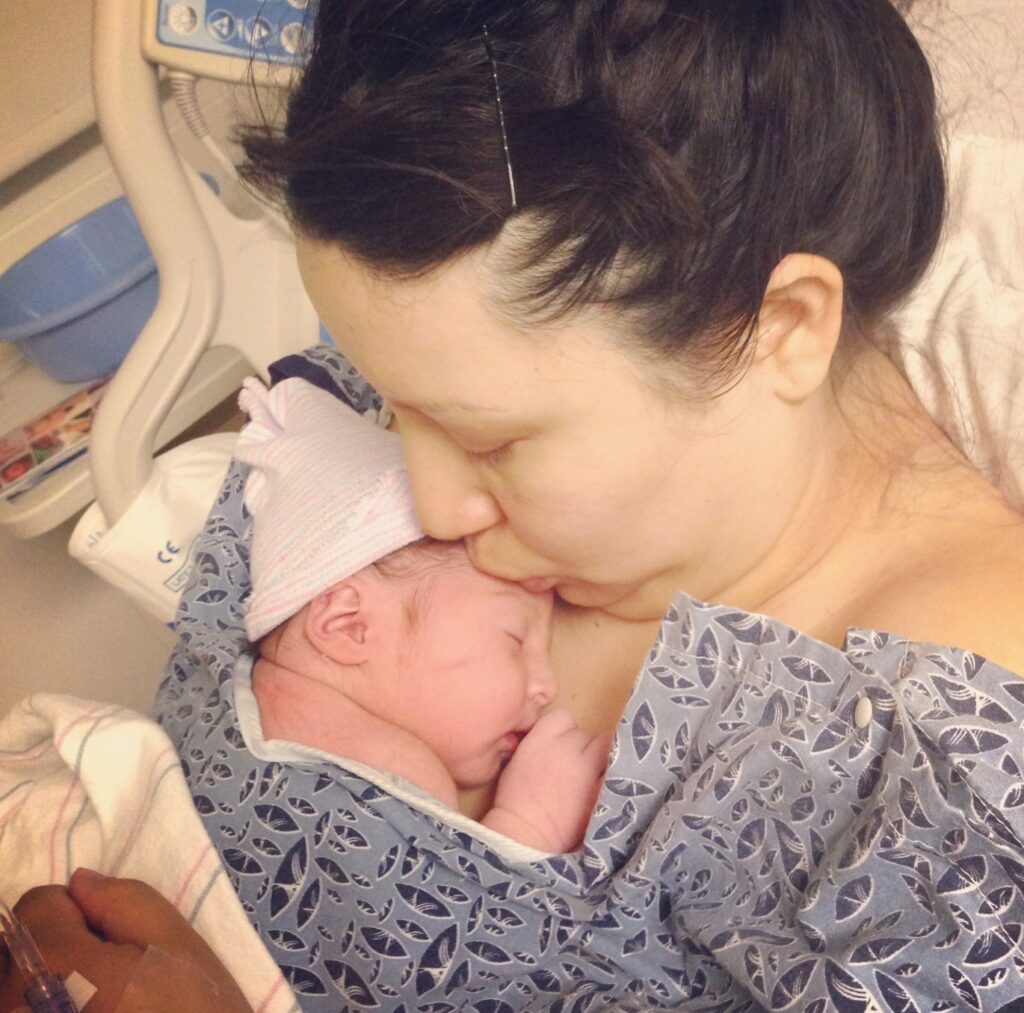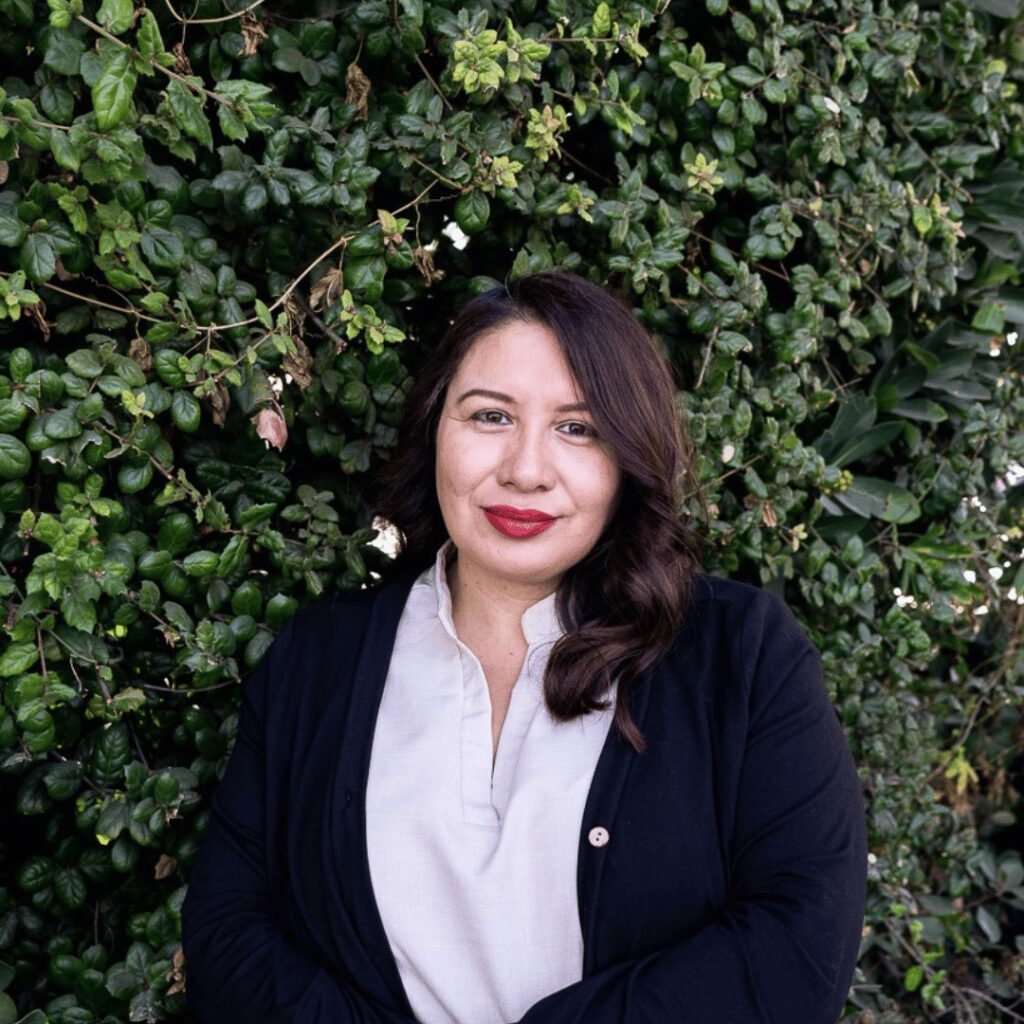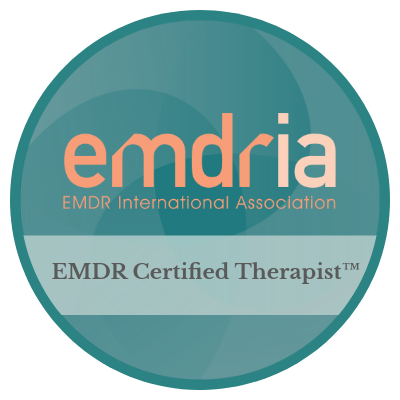It’s Maternal Mental Health Week and I’m feeling the call to be vulnerable and brave to talk about Intergeneration Trauma, PostPartum Anxiety (PPA) and their after effects.
This is a bit of a vulnerable post for me since I’ll be self-disclosing more than usual, perhaps more than other traditional therapists are used to. At the same time, I’m making a choice to discuss this very important topic because it’s super important for me to destigmatize mental health and bring light to the importance of intergeneration trauma especially as it pertains to maternal mental health.
I’m literally typing this at the airport, about to depart for a wonderful vacation to celebrate my best friend’s wedding. The reason this is important is because I almost had a panic attack last night as I was trying to get some sleep, ready to leave early in the a.m. today.
The healing journey is different for everyone, but it does not need to be long or scary if you receive the right support and understanding.
You see, the apple of my eye, my 5 year old daughter had just fallen asleep and she was breathing heavily. I wondered if I should have given her Benadryl since she had a small hive on her cheek at bath time. “It might have cleared her sinuses too” I told myself. We still co-sleep (another ball wax I’m not going to get into right now), so I laid down next to her and she moved a little, now sleeping on her stomach. About 5 minutes passed and I realized I couldn’t hear her breathe anymore. “How is that possible, I just heard her have somewhat of a stuffy nose?” “Is she breathing?” My mind jumped right back to her being a newborn, when I suffered from Post Partum Anxiety and would check her breathing constantly. I put my hand on her back to feel her breathe, feel it go up and down, but nothing. I couldn’t tell if she was breathing. I started to panic. I immediately shook her to wake her up. She let out a very annoyed, “whaaaaaat, mommy? No. Let me sleep.” Never have I been so grateful for her little annoyed tone and words. She was certainly breathing and alive, and thankfully, went right back to sleep.
So am I an overprotective, anxious mom? Yes. Absolutely.
While that’s true. I also want to interject and share a little about the intergenerational trauma I was exposed to and why these intrusive thoughts about my daughter’s breathing is so important. My mother is from El Salvador, one of the smallest Central American Third World countries. When she had her first child in the 1970’s, the infant mortality rate was extremely high (thankfully since then it has decreased significantly). Her first baby girl died as an infant. That was super traumatic for her, since for much of my mom’s life up to that point was also plagued by extreme poverty, her father’s alcoholism, losing her own mother at 12 years old, as well as experiencing the death of her youngest twin siblings. The male twin died during infancy. The female twin died at 6 years old. She too was the light of my mother’s eye and she watched her get very sick and die. A few months later, her own mother would also die a painful cancer death.
This is my mother’s trauma. And although I didn’t experience these things directly. I experienced being parented by a single mother with so much grief, trauma, sense of helplessness and vacillating fears that robbed her from experiencing complete joy, bonding, trust, and positivity.
I recognize that we are all individuals. And although our experiences differ, it is so important to reach out to and connect with other parents who can understand some of what we are going through in joy & sorrow as first time mothers.
When I gave birth to my baby girl, I was incredibly happy to hold this perfect little person, whose cries were immediately comforted by my voice (she recognized it right away). Eventually though, after leaving the hospital, I started to have these intrusive thoughts that I too would lose my first child; my first baby girl. I had the fear that I would be destined to suffer the exact same grief my mother did. So I developed different ways to check for my baby’s breathing. I’d watch her back or belly go up and down (of course, every 15 minutes or so). I wasn’t sleeping at all. Even when family members or my husband would send me to sleep, I couldn’t. That was when the intrusive thoughts were loudest and the pounding of my heart was unbearable. I was a wreck. I didn’t trust anyone with her. I was relieved when I was alone with her because I knew that I could give her my undivided attention. This isolation came at an expense though. Once I peed on myself because I didn’t want to put her down when she was crying.
At the time, I had been a child therapist for about 5 years. And I was pretty certain I knew the signs of post partum depression, post partum psychosis, and even post partum OCD. I had neither of those. I knew I had suffered from PTSD since childhood — some episodes more intense than others, but I chalked what I was going through to normal anxiety, especially when you’re certain that you know the outcome. I had this intense tunnel vision focused on the destiny I was set to have. “I mean, doesn’t everyone worry that their child is going die and stop breathing? What do I do if she stops breathing?” “You call 9-1-1” the nurse calmly told me. I couldn’t figure out why everyone was so calm about it. It was because I had post partum anxiety (complicated by PTSD and intergeneration trauma) and they didn’t. I mean, I’m assuming.
In getting to know intergeneration trauma, I want to quote Lost in Transmission: Studies of Trauma Across Generations, edited by M. Gerard Fromm (2012) as they define it as “what human beings cannot contain of their experience—what has been traumatically overwhelming, unbearable, unthinkable—falls out of social discourse, but very often on to and into the next generation as an affective sensitivity or a chaotic urgency.” That means that I saw how my mother reacted (cried, obsessed over, expressed fears/paranoia, etc) to her trauma and it was transmitted to me, causing me to react anxiously to it as well. And it’s true. I’ve always been an empath, being super sensitive to the energies around me. I’d developed this strong intuition about people’s suffering (us therapists become therapists for a reason) because I’d been doing it since childhood for various reasons. And when I gave birth, not only was I dealing with this delusional destiny, but I also had some health complications as a result of my pregnancy. It was all compounded.
I didn’t speak much of this to many people. A part of me (the overachieving, “I got this” part of me) was thinking that it was no big deal. Another part of me had this idea that this is what new motherhood was — a big worried mess. But perhaps the biggest part of me was influenced by “Marianismo” or what others refer to as the “Maria Complex” where Latina women/mothers are seen as martyrs. A Long Beach based maternal mental health colleague of mine, Susana Marquez, LMFT shares this about Latinas and Postpartum Anxiety: “Postpartum anxiety impacts Latinas culturally and religiously. It creates feelings of unworthiness and shame due to our culture having such strong ties with the Catholic religion and mothers being seen as martyrs or La Virgen Maria. They carry more shame if they have negative feelings about motherhood because we are not supposed to since our mothers and abuelas did it all and never complained. The feelings of isolation, judgement and criticism are perpetuated if a mother shares her thoughts. Creating more isolation and more sense of disconnect from culture religion and motherhood.” Damn, Susana, where you in April 2014 when I needed you? She hit the nail on the head.
So what did I do? I didn’t go to therapy right away. I had a bunch of friends who were therapists/mothers who I reached out and talked to. Their stories of PPD (Postpartum Depression) and motherhood helped a lot. Momma friends also helped a ton. It helped tremendously that my sister gave birth three days after me, although she was in another state, the late night texts and conversations were my saving grace. Long Beach Littles founder Hazel Quimpo who had given birth to her baby boy Miles 6 weeks before me, would also become a hallmark support and great friend. It was because of Hazel that I’d leave the house for lunches, walks at El Dorado Park, free swimming lessons for the babies, and really just another person who understood the struggle of #teamnosleep.
I received a lot of support from my daughter’s pediatrician. She was always receptive to my questions, google knowledge (or lack thereof, lol), and assuaging a lot of my fears. She knew when to explicitly tell me “do not google this” and never made me feel like I was an idiot for bringing my daughter in or my list of questions.
My husband was a great partner, especially when I told him that I still needed more support, professional support. Eventually, I decided to seek therapy for the PPA (postpartum anxiety) and CT (complex trauma). It was there that I realized that we couldn’t tackle one without the other. The generational trauma experienced by my ancestors and mother would come to influence my DNA. The ghosts in the nursery were telling this story of poverty, death, trauma, but also resiliency. The treatment I received was heavily focused on asking/receiving help, acknowledging and validating the pain I held because of the traumas, separating and individuating, and self-care (“do you even know how to relax?” -yes, my therapist really asked me this).
I’ve also received great training in Maternal Mental Health by the organization Maternal Mental Health NOW. More than ever, I now know that the big ticket items is creating a strong support network and treatment.
Finally, I want to shout out to the heavens and to all you mamas who might be going through something similar, please get help. Talk to someone you trust. Talk to someone online. Talk to someone on the street, at the grocery store, someone! I promise you you’re not alone. You and your baby deserve relief, healing, and safety.
References / Resources
https://knoema.com/atlas/El-Salvador/topics/Demographics/Mortality/Infant-mortality-rate
How Trauma is carried through generations. https://www.psychologytoday.com/us/blog/the-me-in-we/201205/how-trauma-is-carried-across-generations https://www.psychologytoday.com/us/blog/the-me-in-we/201205/how-trauma-is-carried-across-generations
Find Susana Marquez at: www.wellnessparalamama.com Instagram: www.instagram.com/wellnessparalamama or Facebook: Wellness para la mama
Los Angeles County Department of Mental Health
*Disclaimer: Please note that this post is strictly for education and does not replace medical and professional help. I strongly encourage that you engage in therapy or speak with their medical professional about any of these ideas. If you find yourself in a medical emergency where you or a loved one is a danger to themselves or others, you are strongly urged to call 9-1-1 or go to your nearest emergency room. The National Suicide Hotline number is: 1-800-273-TALK (8255). In Los Angeles County, you can also call the Department of Mental Health’s Psychiatric Mobile Response Team – Access Hotline at 1-800-854-7771.




